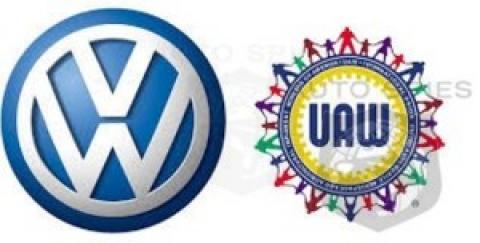Autoworkers in the South are on the cusp of making history. At the sprawling Volkswagen plant, a billion-dollar auto factory located where Chattanooga slips into the Tennessee hills, workers will vote Wednesday through Friday on whether they want the United Auto Workers union to represent them.
Why is this historic? A victory would be the beginning of an ambitious attempt by Volkswagen and the UAW to build a new model for the United States to compete globally. The election itself concludes one of the most innovative and important union-organizing drives in decades.
At its core, the Chattanooga model would have a German-style works council, elected by all plant employees, making key decisions about how the facility is run. The UAW would bargain over wages and benefits, but cede to the council traditional bargaining prerogatives such as work rules and training.
Why have a union at all? U.S. labor law requires one to avoid a works council morphing into a company-dominated union. Moreover, a union would represent workers' economic interests at the bargaining table and give them confidence to speak candidly in the councils. Historically, unions have linked rising productivity to better wages, fueling consumer demand and reducing inequality, not a bad combination right now.
Works councils and unions are hardly new to Volkswagen. The automaker views workers' voices as vital for boosting innovation, productivity and quality. Bernd Osterloh, a member of VW's supervisory board, called works councils a "competitive advantage." As a result, the company has them in all its plants except Chattanooga and two in China.
VW has done very well with this approach. It has led all major automakers in raising shareholder value, an eye-popping 107.1 percent, over the last three years and was virtually tied for second place in global auto production in 2012.
Bob King, the UAW president, has said the union wants the Chattanooga plant "to set the standard globally." The UAW has moved toward a far more collaborative relationship with the Detroit automakers in recent years, generating record profits and new jobs. Union leaders view the works councils as a logical next step.
Unions, historically weak in the South, have been unable to organize a foreign-based automaker not affiliated with Detroit. The UAW announced in September that a majority of VW workers had signed cards to have a union. The company not only has agreed to be neutral, but has allowed union organizers to address workers in the plant, a rare move. "We believe the American culture is democracy," the new VW of America CEO said in January.
Not everyone agrees. Conservative political leaders, business groups and well-funded conservative national organizations are campaigning hard to defeat the union.
Tennessee Gov. Bill Haslam, a Republican, warns new auto investment will dry up with a UAW victory, and U.S. Sen. Bob Corker, R-Tenn., predicts damage lasting "for generations to come." Not to be outdone, a Fox News commentator observes the UAW, "having sucked Detroit dry, is looking South for fresh blood."
Ideology trumps reality in these attacks. A large unionized General Motors plant in Spring Hill, Tenn., two hours away, has hardly damaged the state's competitiveness. In fact, GM has just announced an investment of $350 million that will support 2,000 jobs.
Evidently none of the critics has looked at the Detroit automakers lately. Last year, Ford Motor Co. had record profits in its North American operations - $8.8 billion - and the average profit-sharing check of Ford's 47,000 UAW workers was $8,800 for the year.
Ultimately, the decision to have a union ought to be up to Volkswagen's workers. This right is fundamental to a democratic society. Outside money and resources pouring in to defeat the drive corrode democratic values.
The stakes are high. A union model rolling out of Chattanooga could mean a more successful company, workers across the South taking a test drive, and a new route to the middle class for working families.
Harley Shaiken is a professor at UC Berkeley specializing on labor and the global economy.


Spread the word